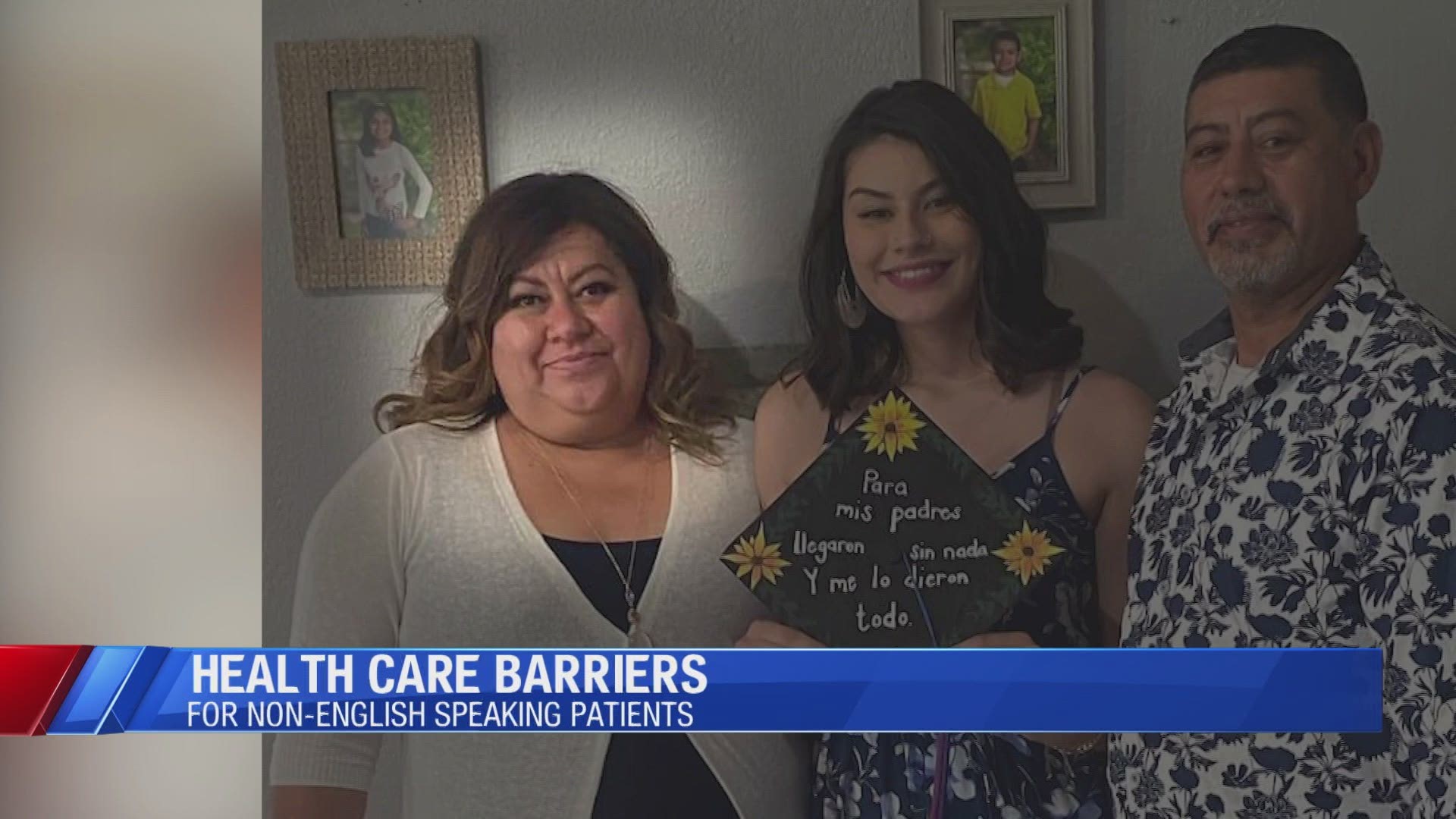MARSHALLTOWN, Iowa — Making health care decisions can be difficult but add in a language barrier, and it can be even harder.
A Marshalltown woman was given hydroxychloroquine while hospitalized for COVID-19 in April.
Olga Guevara signed off on the treatment, but her daughter, Veronica Guevara, said that's only because she didn't fully understand what she was taking.
"When she was finally okay enough to process with us a little bit, still in the hospital, she was like, 'Yeah, I don't honestly remember them,'" Veronica said. "She's like, 'I felt so terrible. I didn't know what they were telling me. I don't know' And so I'm like, how is this not a problem? This is a problem on so many different levels."
Olga spent a week in the hospital after being diagnosed with COVID-19 and pneumonia.
Veronica said during that time, she spent a lot of time on the phone with UnityPoint Health - Marshalltown.
"My mom is a limited English speaker and so I worried about a lot of things," Veronica said.
While fighting for her life, doctors gave Olga hydroxychloroquine.
"We were like, did she consent to this?" Veronica said. "Why didn't anybody speak to my father since he's the spouse? They were like, 'Oh, she's aware enough to consent', and I'm like, okay, but did she understand exactly what this drug is? What it's intended for? What the risks are?"
Federal law requires hospitals to provide interpreters to patients that need them if they get federal funding.
Olga was given an interpreter, but Veronica said it was a phone service and her mom had a hard time hearing the translations.
"Patients admitted to Allen Hospital are offered a consent-for-treatment form in several different languages," Carson Tigges, marketing communications manager at UnityPoint Health – Waterloo, said in an emailed statement Monday. "Additional interpretation services are available at no cost to be used as needed for patients or their surrogate decision-makers to ensure they are able to make an informed decision on plan-of-care options. These patient rights have remained constant before and during the pandemic, and it is always our intention to provide information that meets the needs of patients with any vision, speech, hearing, cognitive or language considerations."
There are a few ways patients can access translation services according to Tigges.
"Patients or family can simply inform or signal to staff that the patient does not speak or understand English well," Tigges said in an emailed statement. "At admission, the patient is asked about primary language and if they need interpretation services. Hospital staff can also initiate use if they are having difficulty communicating with a patient or family member."
Tigges said he couldn't comment specifically on Olga's case.
They did provide us with a statement about the use of hydroxychloroquine to treat COVID-19 patients.
"Hydroxychloroquine was a recommended therapy for hospitalized COVID-19 patients in the early stages of the pandemic, but a later study addressed a lower level of efficacy than originally thought," Dr. Russell Adams, chief medical officer at UnityPoint Health – Allen Hospital, said in an emailed statement. "Allen Hospital discontinued use of hydroxychloroquine at that time. It’s important to remember that we are still in the relatively early stages of research and clinical testing regarding COVID-19 so treatment recommendations will continue to evolve."
A 2016 study published in Health Affairs found a quarter of hospitals with high to moderate language service needs didn't offer them. The study looked at census data from 2009-2013.


